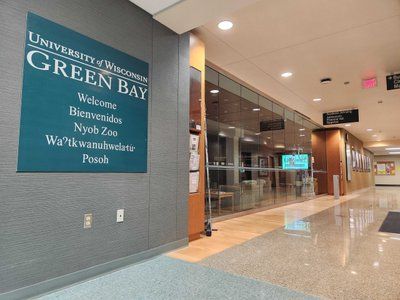By
Tom Still
MADISON
– Waupaca Foundry can trace its roots in Wisconsin to 1871, when the Rosche
family opened the company on the banks of the Waupaca River. Today, the firm
still operates three foundries in Waupaca and another in Marinette, but its
ownership has turned to the east… the Far East.
The
$1.3 billion purchase of Waupaca Foundry by Japan’s Hitachi Metals Ltd., part
of a larger global conglomerate, will likely mean even more growth for a
company that already describes itself as the world’s largest supplier of iron
castings.
Last
month’s announced deal is the latest example of how foreign direct investment
is globalizing Wisconsin’s state’s economy in ways that create jobs, expand
supply chains, open the doors to new markets and provide needed investment
dollars.
Foreign
direct investment is investment by foreign-owned companies in Wisconsin
companies, often for the purpose of cracking into North American markets.
Between 2010 and 2012, 37 foreign direct investment deals were reported in
Wisconsin, a figure that lagged most Midwest states but nonetheless contributed
significantly to the state’s economy.
Exports
and foreign direct investments are flip sides of the same coin. They represent
Wisconsin’s ability to build, produce and grow what the world needs – and to
attract investment from other markets that understand Wisconsin’s strengths.
Read this column in the Wisconsin State Journal here.
A
surprising number of Wisconsin companies have foreign ownership, including many
in manufacturing, food services, paper and packaging. According to a recent
report to the Wisconsin Economic Development Corporation by a special
University of Wisconsin task force on foreign direct investment, the leading
nations are Canada, Germany, Finland, the United Kingdom, Italy, Brazil and
France, which collectively represent ownership in about 80 companies. The full
list would run well into the hundreds of companies, large and small.
Some
companies have boasted foreign ownership for decades, such as Kikkoman Foods in
Walworth. But others are more recent additions, reflecting trends in currency
exchange rates, trade patterns and more.
Marinette
Marine, which is building a new class of combat ships for the U.S. Navy, is
owned by Fincantieri, an Italian firm. Other recent examples include Ingeteam,
a Spanish company that selected Milwaukee for a wind generator and solar
inverter plant, and SEDA, an Italian cup and packaging manufacturer that
selected Racine County. Bostik Products, Milwaukee Electric Tool, Talgo,
Schwartz Pharma, Packerland Packing Co. and McCain Foods are among other
examples.
Experts
say foreign direct investment shouldn’t be looked as just being about the money
– but as an opportunity to expand supply chains, establish markets, improve
warehousing and distribution and more. It short, it can help companies grow.
Waupaca
Foundry is a ready example. It hasn’t been owned by its founding family or
anyone in Wisconsin for decades. It was first purchased by the Michigan-based
Budd Co. in 1968, followed by Germany’s Thyssen group and later KPS Capital
Partners LP, which sold it to Hitachi. The company has grown more or less
throughout those transitions to 3,900 workers, including 2,300 in Waupaca and
Marinette.
A
2011 study by NorthStar Economics for the UW System International Economic
Development Task Force showed that manufacturing and food processing has
attracted a “critical mass” of foreign investment – and that northeast
Wisconsin is a particular hot spot.
Earlier
this year, a first-ever report by the Brookings Institution noted that since
1991, there has been an increase of more than 23,000 jobs from foreign-owned
establishments in Wisconsin, bringing the total to 86,440. The majority were
created in the manufacturing industry, making up 54 percent of the total jobs
created by foreign companies in 2011.
In
Milwaukee, jobs from foreign-owned establishments totaled 27,320, an increase
of about 4,500. Manufacturing also was the leading category, with 42 percent of
the total jobs created by foreign firms in 2011.
Madison
experienced less growth with a total of 7,560 jobs from foreign companies, an
increase of about 3,300 since 1991. Its financial and insurance industry was
most affected, making up 30 percent of all jobs from foreign companies in 2011.
There
are some risks inherent in foreign direct investment, such as the loss of
Wisconsin-based corporate headquarters. But for those who worry about Wisconsin
jobs moving overseas, foreign direct investment counters that trend by
retaining and creating jobs here.
As
the political debate continues about the advantages and drawbacks of
outsourcing and trade, foreign direct investment shouldn’t be overlooked as a
part of the equation. Wisconsin’s reputation as a place to do business can mean
attracting investment dollars from far beyond its borders – and the borders of
the nation.





